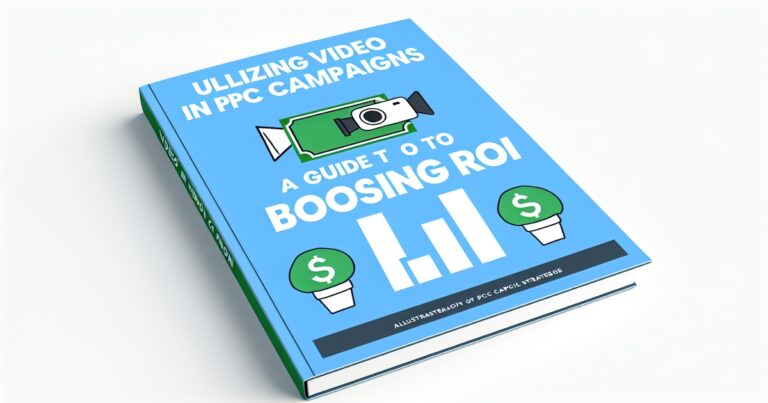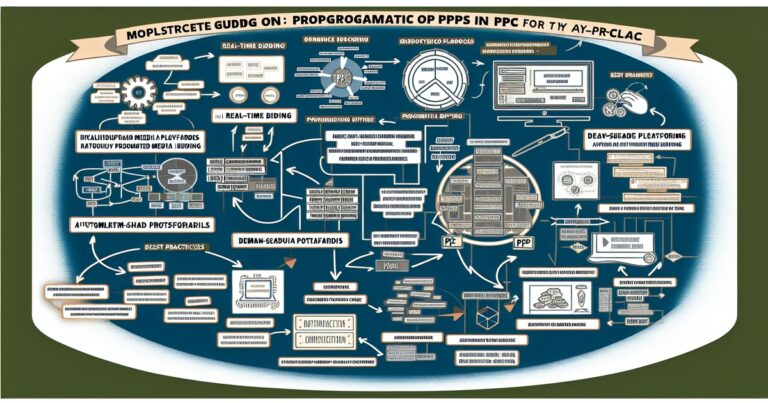Branding and marketing are two essential components of any successful business. While they are often used interchangeably, the truth is that branding and marketing serve different purposes in helping a company grow and thrive. Understanding the differences between branding and marketing is crucial for any business owner looking to improve their overall strategy.
The Importance of Branding and Marketing for Businesses
Branding encompasses everything from a company’s name, logo, messaging, values, tone, and more. It’s all about creating a unique identity for your business that sets it apart from competitors.
A strong brand helps establish trust with customers and build long-term loyalty. Marketing, on the other hand, is all about promoting your brand to potential customers.
It’s the process of creating awareness around your products or services by using various tactics such as advertising, content creation, social media engagement, email marketing campaigns to name a few. Effective marketing strategies help attract new customers while keeping existing ones engaged with your brand.
Brief Overview of the Differences Between Branding and Marketing
The main difference between branding and marketing is that branding focuses on establishing a unique identity for your business while marketing promotes that identity to potential customers through various channels like social media or ads online/offline. The branding process is more long-term than marketing as it involves developing core values defined by how businesses operate internally but presented in public using creative visuals & messaging throughout various customer touchpoints such as websites or packaging design which can be seen over a much longer period of time compared with campaign-specific messages used in most forms of short-term promotional activity like discounts or offers etc., which are typically only available for shorter periods. : Branding is more about creating an emotional connection with people while making them understand what you stand for whereas Marketing activities are more about promoting your brand and its values to potential customers who are not already aware of it.
What is branding?
Branding refers to the process of creating a unique identity for a business. It involves developing a set of characteristics, such as logo, messaging, values and tone that differentiate your product or service from others in the market. A strong brand can evoke positive emotions from customers through consistent interaction with the brand experience.
Definition of branding
The American Marketing Association defines branding as “a name, term, design, symbol or any other feature that identifies one seller’s good or service as distinct from those of other sellers.” This definition highlights the essential characteristics of branding: differentiation and identification. A successful brand should stand out in a crowded marketplace and clearly communicate its unique value proposition to consumers.
Importance of branding for businesses
Brand recognition is crucial for businesses looking to establish their space in the market. A well-developed brand can be used to build customer trust and loyalty over time.
By consistently delivering high-quality products or services that align with their values and messaging, brands can create an identity that resonates with customers on an emotional level. Moreover, having a strong brand can help businesses stand out in competitive markets.
Customers are more likely to choose an established and recognizable brand when they have multiple options available. Additionally, strong brands can command premium pricing due to their perceived value proposition.
Elements of a strong brand (logo, messaging, values, tone)
There are several key elements required for building a strong brand identity: – Logo: The visual representation of your business
– Messaging: The language you use to communicate your value proposition – Values: The principles you stand by as a company
– Tone: The personality conveyed through communications All these elements combined create an authentic character behind your business that reflects its unique personality.
Consistency in these elements is critical because it builds familiarity with your target audience over time. A strong brand can become a valuable asset that helps businesses stand out in their market and build lasting relationships with customers.
What is Marketing?
Marketing refers to the process of promoting and selling products or services to customers. It involves understanding customer needs and preferences, creating a product or service that meets those needs, and then communicating the value of that product or service to potential customers. The goal of marketing is to attract new customers and retain existing ones, ultimately leading to increased sales and revenue for a business.
Definition of Marketing
According to the American Marketing Association, “marketing is the activity, set of institutions, and processes for creating, communicating, delivering, and exchanging offerings that have value for customers, clients, partners, and society at large.” Essentially, marketing involves all the activities a business undertakes in order to create demand for its products or services.
Importance of Marketing for Businesses
Marketing is essential for businesses because it helps them reach potential customers and increase sales. Effective marketing campaigns can help businesses build brand awareness, differentiate themselves from competitors, generate leads and conversions online or offline. Additionally there are several metrics that can determine if their marketing strategy is working such as website traffic increase or social media engagement.
Different Types of Marketing (Digital Content & Social Media)
There are various types of marketing strategies available today such as digital marketing , which includes search engine optimization (SEO), pay-per-click (PPC) advertising on search engines like Google Ads. Social media marketing has also become an important tool in reaching target audiences through platforms like Facebook Ads or Twitter Ads.
Content marketing has become increasingly popular as well; this type of marketing involves creating valuable content such as blog posts videos that provide insight into your industry niche. This content aims to educate potential customers about your products/service , how they work among other information related with frequently asked questions.
Overall there are various ways in which companies can market their products/services while utilizing different channels online/offline. It’s important to understand the different marketing strategies available to determine the best approach for a business.
The Differences Between Branding and Marketing
While branding and marketing are often used interchangeably, they are fundamentally different concepts. Understanding these differences is crucial for businesses to effectively communicate their value proposition to their target audience.
Branding focuses on creating a unique identity for a business, while marketing focuses on promoting that identity to customers
At its core, branding is about defining what makes a business unique and different from its competitors. This can include creating a distinct visual identity through logo design and color schemes, developing key messaging that communicates the brand’s values and personality, and establishing a tone of voice that sets the brand apart from other businesses in the same industry. Marketing, on the other hand, is about promoting this unique identity to potential customers through various channels such as advertising, social media campaigns, email marketing, events or PR.
Effective marketing strategies are tailored to reach specific audiences with messages that resonate with them based on their needs or interests. It involves creating campaigns or initiatives aimed at driving sales in the short term by generating awareness or interest in a product/service rather than building long-term relationships with customers.
Branding is more long-term and strategic in nature while marketing is more short-term and tactical
A successful branding strategy requires careful planning over time to ensure consistency across all touchpoints. Branding efforts require deep understanding of consumers’ needs as well as competitors’ strategies so it can differentiate itself by offering something unique that cannot be found elsewhere. Marketing tactics are typically focused around promotions of products/services which can change frequently in response to market conditions or competition trends.
This means marketers may need to shift gears quickly depending on what’s happening in the market. Branding efforts lay the foundation for all future marketing activities by providing an authentic story behind why people should care about products/services offered by businesses.
Marketing, in contrast, is a more tactical way of promoting that story to a wider audience. While branding and marketing may seem similar in theory, they are two distinct concepts with different goals and approaches.
Businesses that succeed in creating strong brands can ensure long-term loyalty from customers who appreciate what makes them unique. By effectively promoting this uniqueness through marketing initiatives, businesses can attract new customers and stay ahead of their competition.
ExamplesBranding Example: Coca-Cola vs Pepsi
Coca-Cola and Pepsi are two of the most iconic brands in the world, with distinct logos, messaging, and values. While both companies offer similar products (carbonated soft drinks), their branding strategies are vastly different. Coca-Cola is known for its classic logo and timeless brand messaging focused on happiness and sharing moments with loved ones.
In contrast, Pepsi has evolved its branding over the years to appeal to younger, more diverse audiences with edgier marketing campaigns. Coca-Cola’s strong branding has helped them maintain a loyal customer base for over a century.
The company’s focus on emotional connections and nostalgia has allowed them to create a brand that is instantly recognizable worldwide. Meanwhile, Pepsi’s more fluid branding approach has helped them stay relevant in an ever-changing market by appealing to younger generations who value diversity and inclusivity. Marketing Example: Nike’s “Just Do It” Campaign
Nike is widely known for its powerful marketing campaigns that inspire athletes around the world. The company’s “Just Do It” campaign introduced in 1988 has become one of the most iconic marketing slogans of all time.
The campaign was aimed at inspiring athletes to push themselves beyond their limits and achieve greatness. The “Just Do It” campaign was wildly successful because it resonated with consumers on an emotional level.
It wasn’t just about buying Nike products; it was about being part of a movement that celebrated hard work, dedication, and perseverance. Since then, Nike has continued to use powerful marketing messages in its campaigns that inspire athletes around the world. The Synergy Between Branding & Marketing: Apple Inc.
Apple Inc. is often cited as one of the best examples of how effective branding and marketing can work together to create a powerhouse company. Apple’s simple yet elegant product designs, sleek packaging, and iconic logo have become instantly recognizable worldwide. The company’s branding strategy focuses on creating a unique, premium experience for its customers, and its marketing campaigns highlight how Apple products can improve people’s lives.
Apple’s synergy between branding and marketing has helped them become one of the most valuable companies in the world. Customers are willing to pay a premium for Apple products because of the strong emotional connections they have with the brand.
Meanwhile, Apple’s marketing campaigns continue to showcase how their products can help make people’s lives easier and more enjoyable. These real-world examples illustrate how branding and marketing work together to create successful businesses.
Coca-Cola, Pepsi, Nike, and Apple each have distinct approaches to branding and marketing that have allowed them to stand out in their respective markets. Understanding the differences between branding and marketing is crucial for any business looking to establish a strong presence in today’s competitive landscape.
Why Both Are Important
While branding and marketing may have different goals, they are both crucial for any business to succeed. A strong brand sets a company apart from its competitors, while effective marketing helps attract new customers and drive sales. Without either of these components, a business may struggle to establish its identity and find success in the market.
Strong Branding Helps Differentiate a Business from Competitors and Build Customer Loyalty
In today’s crowded marketplace, it’s more important than ever for businesses to establish a strong brand that sets them apart from their competitors. A well-defined brand helps customers understand what a business stands for and what it offers, creating trust and loyalty between the customer and the brand.
A strong brand also makes it easier for businesses to introduce new products or services. Customers who are already loyal to a particular brand will be more likely to try out new offerings if they trust the company behind them.
Effective Marketing Helps Attract New Customers and Drive Sales
Marketing is an essential component of any successful business strategy. Effective marketing efforts help businesses reach new audiences while keeping current customers engaged with their brand.
Different types of marketing can be used to achieve different goals. For example, digital marketing can help businesses reach customers through social media platforms or search engine ads.
Content marketing involves creating valuable content that engages potential customers and builds trust in your brand. No matter what type of marketing is utilized, it’s important for businesses to have a clear understanding of who their target audience is in order to effectively reach them with their messaging.
The Importance of Balancing Branding And Marketing
While both branding and marketing play critical roles in building a successful business strategy, finding the right balance between the two is key. A company that focuses solely on branding may have a strong identity but may struggle to attract new customers without effective marketing strategies in place. On the other hand, a business that relies too heavily on marketing tactics without a strong brand identity may struggle to establish long-term relationships with customers or differentiate themselves from competitors.
Ultimately, it’s important for businesses to invest in both branding and marketing efforts in order to achieve long-term success. By developing a strong brand identity and effectively reaching target audiences through various marketing channels, businesses can build trust and loyalty with customers while attracting new ones and driving sales.
In today’s dynamic business environment, it’s essential for companies to stay relevant and adapt quickly. By prioritizing both branding and marketing efforts, businesses can create a solid foundation for growth and success, while navigating the ever-changing landscape of their industry.
Conclusion
Recap of Main Points About the Differences between Branding and Marketing
Branding is about creating a unique identity for your business, while marketing is about promoting that identity to customers. Branding focuses on the long-term strategy of building customer loyalty and differentiation from competitors, while marketing focuses more on short-term tactics to attract new customers and drive sales.
Branding is all about establishing a strong foundation for your business, which includes defining your values, tone, messaging and visual elements like logos. Marketing complements branding by providing the tools to reach your target audience through various channels like social media or email marketing campaigns.
Final Thoughts on Why Understanding These Concepts are Crucial for Any Business
Understanding the difference between branding and marketing is crucial for any business because it allows you to effectively build a strong brand that resonates with your target audience while also driving sales. By having a clear understanding of these concepts, you can create an effective branding strategy that will help you stand out from competitors in today’s competitive market. Whether you’re starting a new business or looking to rebrand an existing one, understanding these concepts will ensure that you’re not only attracting new customers but also building long-term relationships with them based on trust and loyalty.
By investing in both branding and marketing strategies, businesses can create a strong foundation for growth and success in today’s ever-changing landscape. Overall, it’s important to remember that building a successful brand takes time but by consistently delivering value to customers through effective marketing campaigns – businesses can build trust and win over their target audience.









